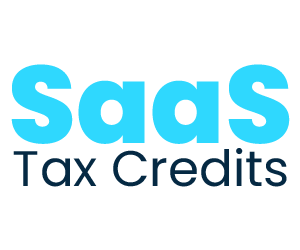SaaS Tax Credits FAQs
Demystifying R&D Tax Credits for SaaS Businesses
At SaaS Tax Credits, we recognize the complexities surrounding tax credits for innovative SaaS companies like yours. This FAQ aims to clarify the eligibility and processes involved in claiming Research and Development (R&D) Tax Credits.
Frequently Asked Questions
Claiming the R&D tax credit can seem complex, but SaaSTaxCredits is here to help. Here’s an overview of the process
Very likely! Developing novel software features, functionalities, or algorithms is a prime example of a qualifying R&D activity. Our team can assess your specific projects to determine their eligibility based on the following criteria:
- Creation of something new or improvement of an existing product (software, process, etc.)
- Addressing technical uncertainties to achieve this objective
- Employing a systematic approach (trial and error, development lifecycle) to find solutions
- Reliance on fundamental scientific principles (computer science, engineering, etc.)
It depends! The specific amount of potential savings varies. The R&D Tax Credit offers a dollar-for-dollar reduction in your federal income tax liability based on your qualified research expenses (QREs). Typically, SaaS companies experience a benefit of 7-10% of federal QREs, with potential state credits further increasing that number (depending on your location).
We eliminate the complexities from the equation. Our team of experts has a proven track record of maximizing R&D Tax Credits for SaaS companies. Here's how we streamline the process:
- Free Consultation: Discuss your R&D activities and goals with our specialists. Explore eligibility and get a clear picture of the process.
- Seamless Claim Preparation: We handle the heavy lifting, gathering documentation and ensuring your claim is accurate and optimized.
- Audit Support: Have peace of mind knowing we'll stand by you if your claim is ever challenged.
Absolutely! Many expenses crucial to your SaaS R&D efforts qualify, including:
- Salaries of developers and engineers directly involved in creating or improving your software.
- Costs of cloud computing resources used for software development.
- Payments to freelance developers or contractors working on qualified R&D projects.
Keep in mind that some activities are excluded, such as:
- Research unrelated to computer science, engineering, or other core scientific fields.
- Work solely focused on adapting existing software or fixing bugs (unless it involves overcoming technical uncertainty).
- Market research, routine testing, or activities related to general business management.
Filing a timely R&D tax credit claim with SaaS Tax Credits won't raise any red flags. The IRS audit selection process is random, and qualified R&D activities are a legitimate way to reduce your tax burden.
Certainly! Even if you're not yet profitable, the beauty of R&D Tax Credits is that you can:
- Carry unused credits forward up to 20 years to offset future tax liabilities.
- Potentially offset payroll taxes for qualified small businesses (QSBs) under specific criteria
Absolutely! That's precisely the kind of innovative spirit the R&D Tax Credit program encourages. As long as your experimentation has a clear goal (like improving performance or adding a new feature) and involves overcoming technical uncertainties, it can be considered a qualifying R&D activity.
There may be limitations on claiming R&D credits for offshore developers, even though the core R&D activities qualify. R&D tax credit programs vary by country, and the payment structure can also impact eligibility. We'd recommend double-checking the specifics to ensure accuracy. We can help you find resources or consult with a tax specialist to confirm what applies to your situation.
It depends. While gathering user feedback is crucial, simply making tweaks based on user preferences wouldn't qualify as R&D. However, if your team is actively using that feedback to address technical challenges or overcome uncertainties in the design or functionality of your software, then it can be considered part of the R&D process.
We understand transparency is key. We charge a 20% fee of the tax credits we're able to help you claim.
At SaaSTaxCredits, we minimize the burden on you. We handle the heavy lifting of documentation and claim preparation. All you need to do is provide us with:
- A clear overview of your R&D projects and goals.
- Details on your development team's activities and methodologies.
- Records of your qualified R&D expenses (salaries, software licenses, etc.).
Rest assured, we have your back! Our team has extensive experience navigating R&D tax credit audits. We'll provide all the necessary support and documentation to ensure a smooth resolution.
Definitely! We understand the financial constraints faced by early-stage startups. We offer flexible payment options and can tailor our services to fit your specific needs and budget.
We take pride in our unique approach. Here's what sets us apart:
- SaaS-focused expertise: We understand the specific R&D challenges faced by SaaS companies.
- Streamlined process: Our user-friendly approach minimizes your time commitment.
- Transparent pricing: We offer upfront quotes with no hidden fees.
Audit defense: We stand by your side in case of an IRS audit.
Potentially! If the integration process involves overcoming technical hurdles or uncertainties specific to your product's functionality, then the development costs might qualify. For example, if you had to develop custom code to ensure seamless data exchange with a particular third-party app, those expenses could be considered for the R&D credit.
Including an outsourced firm's expenses in your R&D tax credit claim might be possible, but it depends on the specific payment structure between your company and the outsourcing company.
Here are a few pitfalls to avoid:
- Poor documentation: Without clear records of your R&D activities, expenses, and methodologies, your claim might be delayed or even rejected.
- Misunderstanding qualifying activities: Not all software development qualifies as R&D. Make sure your projects meet the criteria for overcoming technical uncertainty and creating something new.
Claiming unqualified expenses: Only costs directly tied to qualified R&D activities are eligible. Mixing in general business expenses can jeopardize your claim.
Simply contact us for a free consultation. Our R&D Tax Credit specialists will discuss your projects, assess your eligibility, and answer any questions you might have. We'll also provide a transparent quote for our services.

